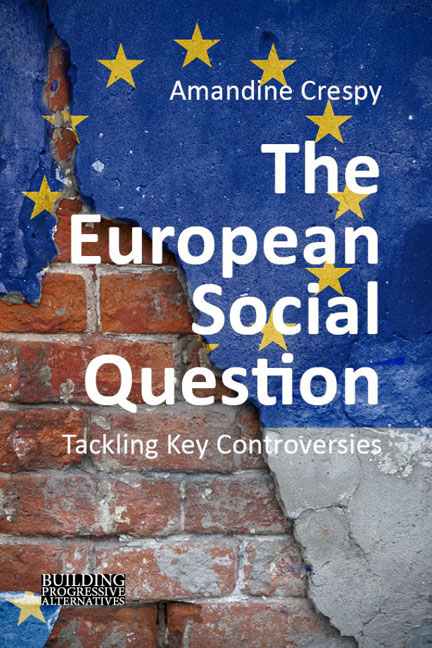Book contents
- Frontmatter
- Contents
- Acknowledgements
- Abbreviations and acronyms
- Dedication
- Introduction: “Social Europe” – irrelevant, catching up or dangerous?
- 1 What is the European social question?
- 2 Is the EU a key player in addressing social issues?
- 3 Are socially minded actors too weak in EU policy-making?
- 4 Is European social regulation a thing of the past?
- 5 Does liberalization undermine social cohesion?
- 6 Does the European social dialogue really protect European workers?
- 7 Does soft coordination support welfare states?
- 8 Is redistribution unconditional?
- 9 Is the EU fit for the social challenges of the twenty-first century?
- Conclusion: from the social question to the democratic question
- Index of CJEU judgments
- References
- Index
8 - Is redistribution unconditional?
Published online by Cambridge University Press: 20 December 2023
- Frontmatter
- Contents
- Acknowledgements
- Abbreviations and acronyms
- Dedication
- Introduction: “Social Europe” – irrelevant, catching up or dangerous?
- 1 What is the European social question?
- 2 Is the EU a key player in addressing social issues?
- 3 Are socially minded actors too weak in EU policy-making?
- 4 Is European social regulation a thing of the past?
- 5 Does liberalization undermine social cohesion?
- 6 Does the European social dialogue really protect European workers?
- 7 Does soft coordination support welfare states?
- 8 Is redistribution unconditional?
- 9 Is the EU fit for the social challenges of the twenty-first century?
- Conclusion: from the social question to the democratic question
- Index of CJEU judgments
- References
- Index
Summary
Contrary to national welfare states, social policy at the EU level focuses pri¬marily on regulation rather than redistribution. However, the EU does pursue a redistributive policy in the form of EU funds, notably the European Social Fund (ESF). Generally, a redistributive policy consists of transferring resources from the wealthiest territories, social groups or individuals to those who are the least well-off, with the aim of reducing inequalities and ensuring a sufficient level of social and territorial cohesion. Typically, this occurs as fiscal revenue is being collected in a central budget, which can then be redistributed in different ways. In the case of the EU, with a budget capped at around 1 per cent of the GDP over recent decades, its redistributive capacity has nevertheless remained very limited. This reflects the fact that, unlike national states, the EU does not enjoy strong legitimacy to act as a redistributive authority.
As early as 1957, Article 123 of the Treaty of Rome establishing the EEC had forecast the creation of an ESF that “shall have the task of promoting within the Community employment facilities and the geographical and occupational mobility of workers”, particularly for those from the poorest regions of the six member states. Today an integral part of European “cohesion policy”, the ESF is enshrined in Title XI TFEU. It has been the main social policy instrument of the EU, amounting to approximately 10 per cent of the total EU budget since the 1990s. Along with four other funds, the ESF has been integrated into the European structural and investment funds, thus underlining that it should serve as a tool to implement a broad socio-economic strategy rather than as an instrument of unconditional redistributive solidarity. Two smaller funds with social objectives deserve to be mentioned here. The European Globalization Adjustment Fund (EGF), created in 2006, provides support to people who lose their jobs as a result of firms relocating production activities outside the EU. Since 2014, the Fund for European Aid to the Most Deprived supports national programmes providing food and material assistance to people in need. All three funds have undergone recent reforms, and they have seen their resources increased and their missions enlarged to help alle¬viate the social consequences of the coronavirus pandemic.
- Type
- Chapter
- Information
- The European Social QuestionTackling Key Controversies, pp. 163 - 186Publisher: Agenda PublishingPrint publication year: 2022

